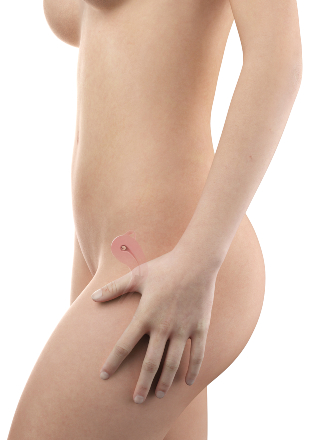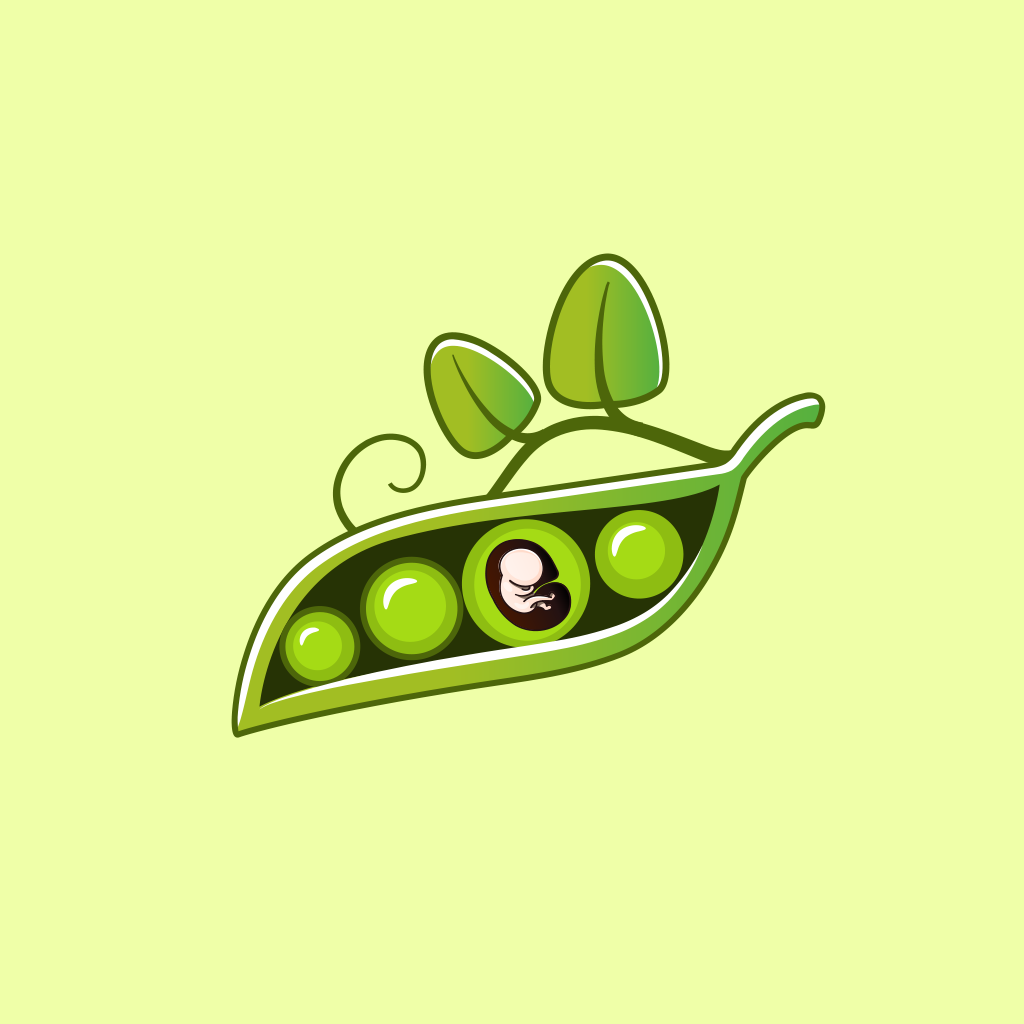Welcome to Week 3 of your pregnancy journey! Even though your body may not “feel” pregnant yet, something truly magical is happening deep inside. This is the week when fertilization usually takes place—an egg and a sperm meet and create a brand new, unique combination of DNA. It’s the very start of your baby’s life, often before you realize you’re expecting.
At this stage, your baby is called a “zygote.” It’s smaller than a grain of salt and contains all the information needed to become your little one, from eye color to potential dimples. The zygote is busily dividing and multiplying as it travels down your fallopian tube toward your uterus. This remarkable journey usually takes about five to six days.

By the time the zygote reaches your uterus, it has become a cluster of hundreds of cells. This cluster, now called a blastocyst, begins to gently implant itself into the lining of your uterus—a process called implantation. This is a crucial moment as your body begins to support and nourish your developing baby.
- You probably won’t notice any new pregnancy symptoms yet. Some women may experience spotting or very mild cramping from implantation; both are usually harmless and very common.
- You may not get a positive pregnancy test result yet. It often takes another week or so for pregnancy hormones to rise enough for detection.
- This is a great time to care for yourself. If you haven’t already started taking prenatal vitamins, it’s not too late. Staying well-hydrated, eating nourishing foods, and avoiding smoking or alcohol can help give your baby the healthiest start.
Even though it’s invisible to the eye, Week 3 is filled with enormous changes. It’s okay if you don’t “feel” pregnant just yet—your body is working quietly in the background to begin a wonderful new chapter. Every day brings tiny steps forward for your growing baby—and for you as a mom. Remember, you are already doing an incredible job by simply being here, learning, and taking care of yourself.
Your Baby’s Development This Week
At Week 3 of pregnancy, so much is happening behind the scenes, even though you can’t see or feel it yet. This is an amazing time, as life is just beginning for your baby on the tiniest level. Here’s what’s going on inside your body this week:
Right about now, one lucky sperm has joined with your egg—a moment called fertilization or conception. The result is a single cell called a zygote, which is the very first stage of your baby’s life. But things move quickly! The zygote begins dividing into more and more cells, forming what’s called a blastocyst. Imagine a little ball of cells, about the size of a grain of salt, working hard and multiplying as it gently travels down your fallopian tube toward your uterus.
By the end of this week, your baby (still just a cluster of cells) arrives in the uterus and looks for a cozy place to settle. When the blastocyst attaches to the soft lining of your uterus — a process known as implantation — your pregnancy is officially starting. This is a crucial milestone, because it creates the first real connection between you and your baby. Implantation is what allows the placenta to start forming. Over the weeks ahead, the placenta will become your baby’s lifeline, providing all the food and oxygen they need to grow.
Although you can’t see your baby, and most people don’t even know they’re pregnant at this point, the groundwork for all major body systems begins with these first cells. What’s truly amazing is that this tiny cluster already contains all the genetic information — including whether your baby will be a boy or a girl, eye color, hair color, and even parts of their personality!
- Implantation Spotting: Some women notice a small amount of pink or brown spotting during implantation. This is normal and usually very light—nothing like a regular period.
- Beyond Looks: Even though the blastocyst doesn’t yet look anything like a baby, it will soon start forming layers. Each layer has a different job, like becoming your baby’s brain, heart, spine, and other important organs.
- Building Blocks: Meanwhile, another part of the blastocyst is turning into the placenta and amniotic sac. These will protect and nourish your baby for the months ahead.
This week is all about setting the foundation for your baby’s future growth. Everything your body is doing right now — often without any noticeable symptoms — is absolutely vital for what’s coming next. Remember, just because you don’t feel any different does not mean amazing things aren’t happening inside you!
If you’re already taking your prenatal vitamins with folic acid and making healthy choices, you’re giving your little one the best possible start. Feel free to celebrate this magical beginning, even if it’s still your little secret. Week 3 may be the start of your journey, but it’s already full of promise and potential.
Be patient with yourself and trust that your body knows exactly what it’s doing. Every great story begins with a beautiful first chapter—and yours is underway right now.
Changes in the Mother’s Body
Week 3 of pregnancy is a time when tiny but remarkable changes begin to happen, even though most women don’t realize they’re pregnant just yet. Right now, your body is quietly laying the foundation for everything your baby will need to grow over the next months—starting with important hormonal shifts and small physical changes. Every pregnancy is unique, so your experience may differ from another mom’s, and that’s perfectly normal.
One of the first things happening inside is the journey and implantation of the fertilized egg. After conception, the fertilized egg travels down the fallopian tube toward your uterus. Once it arrives, it nestles into the lining of your womb—a process called implantation. This is when your body really starts to gear up for pregnancy, setting off a cascade of new signals and preparations.
- Very Early Signs: Most women don’t feel noticeably different at this point. However, a few might notice extremely subtle hints that something special is happening. These can include mild cramping low in your belly, feelings similar to pre-period discomfort, or a mild ache. Some women experience a tiny amount of spotting or a light pink or brownish discharge known as “implantation bleeding.” This is normal and usually very light—much different from a typical period.
- Hormonal Changes Begin: Your pregnancy hormones are just starting to rise. The hormone hCG (human chorionic gonadotropin), along with progesterone and estrogen, starts increasing after implantation. While most classic signs of pregnancy like nausea or noticeable breast changes are usually still a week or two away, a few women might notice their breasts feeling a bit fuller or slightly more sensitive now. Sometimes, you might also feel a little extra tired, have occasional bloating, or sense that your emotions are a bit more up and down than usual.
- No Major Changes Yet: Don’t worry if you feel completely normal. For many women, this week passes without any symptoms at all. In fact, most won’t suspect pregnancy until after a missed period, several weeks from now. That’s why it’s so important to start healthy habits as soon as you start trying to conceive or think you could be pregnant.
- Everyday Life: You can continue with most of your usual activities unless directed otherwise by a provider. If you’re already taking prenatal vitamins, great job! If not, it’s an ideal time to start—especially one with plenty of folic acid. Make sure you’re getting a variety of nutritious foods, and try to ease up on anything that could pose risks, such as smoking or drinking alcohol.
Remember, every woman’s body reacts differently at this early stage. Some feel tiny changes, while others notice nothing at all. The important thing is to listen to your body, begin taking care of yourself with gentle self-care and healthy choices, and reach out to a healthcare provider with any questions or concerns. The journey has just begun, and each week will bring new changes and experiences to look forward to.
What Medical Care Do You Need at Week 3?
At Week 3 of pregnancy, most women don’t even realize they are expecting just yet. This is a very early stage—your fertilized egg is just starting to settle into your uterus. Because it’s so early, you don’t need to rush to the doctor right away unless you have special health concerns. Still, there are some simple things you can do now to set yourself up for a healthy pregnancy.
- No Urgent Provider Visits Needed Yet: Most doctors will suggest your first prenatal checkup around 6 to 8 weeks, which is usually after you’ve missed a period and taken a home pregnancy test. At week 3, it’s perfectly normal to not have any appointments scheduled.
- Start with Healthy Habits: This is a great time to start or continue taking a prenatal vitamin that includes folic acid. Folic acid helps protect your baby’s brain and spine as they begin to form. Try to avoid smoking, drinking alcohol, or taking any medicines that aren’t approved by your healthcare provider.
- If You Take Regular Medications: If you have a health condition (like diabetes, high blood pressure, or thyroid issues) or take prescription medicine daily, reach out to your provider or pharmacist for advice as soon as possible. They can help you make sure everything you’re taking is safe for your baby’s early development.
- Keep Track of Any Unusual Symptoms: While most women feel totally normal at this stage, a few may have some light spotting (called implantation bleeding), mild cramps, or a bit of tiredness. All of these are usually normal, but if you ever feel severe pain, heavy bleeding, or anything that worries you, don’t hesitate to call your healthcare provider.
- Set Up for Future Appointments: You don’t need any special blood tests or scans at Week 3, but you can use this time to look up local doctors or midwives, and think about where you’d like to get your prenatal care. It’s never too early to make a list of questions you want to ask when your first appointment comes around.
- Healthy Daily Choices: Sticking with good eating habits, drinking plenty of water, getting gentle exercise, and resting when you need to will help support your baby’s growth right from the start. Even though you might not feel any different, every positive step you take now helps lay the foundation for a healthy pregnancy.
Remember, every pregnancy is unique. If something feels off or you’re just unsure about what to do next, it’s always okay to call your doctor or clinic for advice. They’re there to support you every step of the way—even this early on!
Nutritional Tips and Physical Exercise
At week 3, you may not even realize you’re pregnant yet, but you can still make choices that support both your health and your baby’s earliest development. Good nutrition and gentle movement lay the foundation for a healthy pregnancy, even before symptoms begin. Here’s what you can do right now:
- Fill Your Plate with Color: Try to include a mix of colorful vegetables and fruits every day. These provide vitamins and antioxidants that help your baby’s cells grow. Choose what’s in season or easiest for you to prepare—frozen veggies work just as well as fresh.
- Choose Whole Grains: Brown rice, oats, whole wheat bread, and quinoa give you steady energy and important nutrients such as fiber, which helps if you’re starting to feel any digestive changes.
- Stay Hydrated: Drinking enough water is important as your body begins adjusting to pregnancy. Keep a reusable water bottle nearby and take small sips throughout the day.
- Snack Wisely: If you feel hungry between meals, reach for snacks like yogurt, a small handful of unsalted nuts, or apple slices with peanut butter. These support both your energy and your baby’s early development.
- Pay Attention to Good Fats: Healthy fats—like those in avocados, olive oil, seeds, and fatty fish (like salmon)—are important for your baby’s growing brain and nervous system. Aim to include a small amount with your meals when you can.
- Be Cautious with Certain Foods: Steer clear of high-mercury fish (like swordfish), raw eggs, and unpasteurized dairy. Choose fully cooked meats and wash fruits and vegetables well before eating.
If you’re already taking a daily prenatal vitamin, you’re giving your body (and your baby) the essential building blocks it needs. If you haven’t started yet, now is a great time to begin—especially to get enough folic acid.
Physical activity can help you feel more energized and reduce stress, even early in pregnancy. You don’t need to start anything strenuous—gentle movement is enough:
- Gentle Walks: A short walk each day, even just around your neighborhood or at a local park, can support your mood and keep your muscles active.
- Stretch and Breathe: Simple stretching or beginner yoga sessions can relieve tension in your back and shoulders. Focus on deep, slow breaths; it helps your mind as well as your body.
- Listen to Your Body: It’s normal to feel tired or have less energy this week. Rest when you need to, and avoid any intense or new forms of exercise if they don’t feel comfortable.
If you have any questions about what’s safe to eat or how to stay active, don’t hesitate to ask your healthcare provider. They’re there to help you make the best choices for your health and your baby’s start in life.
Weekly Checklist
At Week 3, your body is hard at work behind the scenes, even if you don’t notice any obvious changes yet. Here are some helpful steps you can take to support yourself and your future baby during this special week:
- Keep taking or start a daily prenatal vitamin with folic acid. If you haven’t started already, now is the perfect time to help protect your baby’s developing brain and spine.
- Make healthy food choices. Focus on eating a variety of colorful fruits and vegetables, whole grains, lean meats, dairy, and plant-based proteins to give your body the building blocks it needs.
- Drink water regularly. Staying hydrated helps with energy levels, digestion, and circulation as your body begins making changes for your baby.
- Begin gentle activity, if you feel up to it. A daily walk or light stretching can help with well-being and prepare your body for the months ahead.
- Cut back on caffeine if needed. Try to limit coffee, tea, or sodas to under 200 mg of caffeine daily—about one 12-ounce cup of coffee.
- Steer clear of alcohol, smoking, and recreational drugs. Even small amounts can be harmful in early pregnancy, so it’s safest to avoid these completely from the start.
- Review any medications or supplements with your doctor or pharmacist. Some over-the-counter and prescription medications aren’t safe in pregnancy. Double-check with your healthcare professional if you’re unsure.
- Tune in to your body. It’s normal to have very subtle (or no) symptoms at this point, but jot down anything new, like extra tiredness or light spotting, so you can share details with your provider later.
- If you’re trying to conceive, keep tracking your cycle. This helps estimate your due date later on and can be useful information for your care team.
- Set up a calming nightly routine. Aim for gentle self-care and restful sleep to help your body recharge as new hormones get to work.
- Consider preparing your home environment. If you have cats, have someone else scoop the litter box to lower the risk of toxoplasmosis—a rare but preventable infection.
Remember, every pregnancy is unique. Most women don’t feel any different at Week 3, so it’s absolutely normal if you don’t notice much happening. Take things one step at a time and focus on supporting your health in small, positive ways.
When to Call Your Provider
At this very early stage of pregnancy, most women aren’t yet aware they’re expecting. Still, it’s important to know that your body can give you signs if something needs medical attention—even this soon. Most symptoms that occur during week 3 are normal and part of early pregnancy changes, but a few deserve a closer look. If any of the following happen, don’t hesitate to reach out to a healthcare provider for peace of mind and care.
- Heavy Bleeding: Light spotting or a mild pink discharge may be normal, but if you experience bleeding that’s heavier than a period, especially if it’s accompanied by clots or pain, it’s always smart to check in with your doctor.
- Severe or Sharp Abdominal Pain: Mild cramps can be a normal sign of changes in your body. But if pain is intense, comes on suddenly, or doesn’t go away, it’s a good idea to have it checked promptly.
- Dizziness or Fainting: Occasional lightheadedness can happen, but ongoing dizziness or fainting spells should be discussed with a healthcare provider to rule out concerns like low blood pressure or early pregnancy complications.
- High Fever: Running a fever higher than 100.4°F (38°C) without an obvious cause, such as a cold, could affect early pregnancy development. Always call your provider if you’re feeling very unwell or feverish.
- Severe Nausea or Vomiting: While it’s still early for most morning sickness, if you find yourself unable to keep down fluids or food, or if you feel extremely unwell, it’s best to let your provider know.
- Unusual Vaginal Discharge: It’s normal for discharge to change during pregnancy. But if it becomes foul-smelling, yellowish, or is accompanied by itching or burning, it could be a sign of infection.
- Worry Over Medications: If you’ve taken any prescription medication, over-the-counter drugs, or herbal supplements without knowing you were pregnant, your provider can advise you about any next steps.
- Chronic Health Conditions: If you have diabetes, epilepsy, high blood pressure, or another long-term health issue, it’s a good time to talk with your provider about how pregnancy may affect your care.
- Any Symptom That Feels Unusual to You: You know your body best. If something doesn’t feel right, or you’re simply worried, reach out—even for reassurance. That’s what your healthcare team is there for.
Remember: Most symptoms, even if surprising, are part of your body getting ready to nurture new life. Early care and a quick conversation with your healthcare provider can help ease worries and keep both you and your baby safe.
Preparations for Baby
Week 3 is a wonderful time to start gently preparing both your mind and home for the tiny life that’s just beginning. Even though you may not feel any major changes yet, establishing some simple habits and planning ahead can help you feel more confident and excited about the months to come.
- Create a Calm Routine: Try to add a few minutes of relaxation into your day, whether that’s listening to music, reading, or just stepping outside for fresh air. A calm and steady routine can help ease early anxieties and make each day feel a bit more predictable.
- Get Your Space Ready: This is a great moment to look around your home and notice small ways you can start to make it even more comfortable. For example, consider setting aside a quiet corner that you’ll eventually use for feeding or cuddling your baby, or simply declutter a bit to make space feel open and inviting.
- Begin a Journal: Jotting down your thoughts, hopes, or even snacks you might crave can make for special memories later. Even a quick note each day helps you track little changes and feelings during early pregnancy.
- Connect with Support: Reach out to someone close—the dad, family member, or a friend—and let them know the exciting possibility you may have. Sharing your thoughts, even if you’re not ready to tell everyone yet, can bring a sense of comfort and shared anticipation.
- Start Gentle Movement: If you’re able, add gentle stretches or short walks to your day. Moving your body can boost mood and build a foundation for healthy habits as your pregnancy progresses.
- Visualize Your Growing Family: Spend a quiet moment imagining the months ahead and the new family member you’ll welcome. Simple visualization can help you feel more connected to your journey and to your baby, even in these earliest weeks.
- Double-check Household Products: Take a few minutes to review products like cleaners or beauty items, ensuring they’re safe for pregnancy or opting for more natural alternatives where needed.
Every big change begins with small steps. By caring for yourself and your space now, you’re already giving your baby a loving, healthy start. Remember, it’s perfectly okay to take things one day at a time—there’s no rush, and you’re doing wonderfully.
Citations and References
- The American College of Obstetricians and Gynecologists (ACOG) – Recommends folic acid supplementation, outlines early pregnancy signs, and prenatal care timing. Visit Source
- Centers for Disease Control and Prevention (CDC) – Provides information on fetal development stages, the importance of folic acid, and healthy pregnancy practices. Visit Source
- World Health Organization (WHO) – Offers evidence-based recommendations for prenatal nutrition and supplements, especially folic acid for neural tube defect prevention. Visit Source
- Mayo Clinic – Details week-by-week pregnancy changes, blastocyst development, implantation, and early maternal symptoms. Visit Source
- Cleveland Clinic – Explains fertilization, implantation, and the role of prenatal vitamins at the start of pregnancy. Visit Source
- National Institutes of Health (NIH) – Office of Dietary Supplements – Advises on recommended daily intake of nutrients like folic acid, iron, and calcium in early pregnancy. Visit Source










